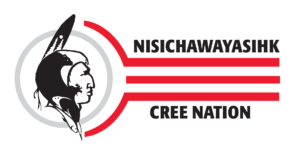Asserting our Sovereignty for the Benefit of our Nation, our Lands and our People
This page provides an ongoing record of information and materials related to our laws, their amendments and review processes.
Governance And Law-Making Move NCN Toward A New Era
Democracy and good governance go hand in hand. Study after study has confirmed that good governance is critical for achieving sustainable economic development. As the democratically elected representatives of the Nisichawayasihk Cree Nation, Chief and Council have the honourable task, and the duty, to ensure legislation, policies and practices are developed and implemented to ensure government takes place by the people and for the people. Participation by NCN Citizens in the institutions and processes of government are essential if NCN is to continue to grow and prosper.
Our Othasowewin and Aski-Pumenikewin give us important tools to govern ourselves in positive and effective ways. Under the Indian Act we only passed four bylaws – Animal Control, Curfew, Membership Code and Financial Administration, all of which had to be approved by the Minister of Indian Affairs. They are all very outdated.
Our plan is to replace all of these with our own laws and to enact many others so that eventually “laws of general application” which section 88 of the Indian Act says apply to us will be replaced by many of our own laws. Our goal is to assert our sovereignty over our traditional lands and negotiate ways to avoid ambiguity and uncertainty with the laws enacted by the federal, provincial and municipal governments while restoring our own jurisdiction.
Nisichawayasi Nehethowuk Okemawin
Nisichawayasi Nehethowuk Okemawin depends on the election of ethical leaders and a competent, skilled public service to effectively deliver programs and services NCN Citizens need. Since Othasowewin was approved by NCN in November 2017, leadership has been working on the various administrative processes that need to be put in place.
The General Assembly held on April 25, 2018 was a historic day for NCN. It marked the review of the first laws to be passed under NCN’s own Constitution. NCN is taking a major step forward to assert sovereignty and to ensure there is accountability and transparency in the decision-making processes. Good governance is critical for the success of any Nation. Economic development requires stable, effective governing institutions.
Steps for Making a Law Under Our Othasowewin
The following steps are taken from Chapter 14 of Othasowewin and Chapter 7 of Aski-Pumenikewin. We are developing a manual for the community and our staff to assist in understanding how to bring forward proposals for laws.
Law-Making Steps
- A law can be initiated by a Proposal to Chief and Council from a member of Chief and Council, an employee of Nisichawaysi Nehethowuk Okemawin or a group of at least 5% of NCN voters;
- Upon receipt of a Proposal, Chief and Council must consider it within 30 days and decide whether to pass a Council Resolution to have a draft law prepared, which law must then be considered at a Council meeting within 6 months;
- After considering the draft law, Chief and Council shall by resolution, direct that the law be considered at a General Assembly, reject the draft law, or request further work on the law;
- The law will then be considered by the General Assembly to obtain advice from NCN Citizens;
- Chief and Council may decide to have workshops about a proposed law before referring it to the General Assembly;
- A report on the deliberations at the General Assembly must be prepared by the public service and tabled at the next regular meeting of Chief and Council;
- Chief and Council will then review the law and the report and decide whether to accept, modify, reject or refer the law to a special committee of NCN Citizens for further consideration and revision;
- If the law is referred to a special committee it must report back to Chief and Council within 30 days;
- If approved, the law will come into effect within 30 days or the date on which Chief and Council decide;
- The law will then be signed by Chief and Council and posted on the NCN website and the First Nations Gazette;
- If a law proposed by a group of at least 5% of NCN Citizens is rejected, they can request written reasons for the decision made by Chief and Council;
- Laws are amended using this same process.

